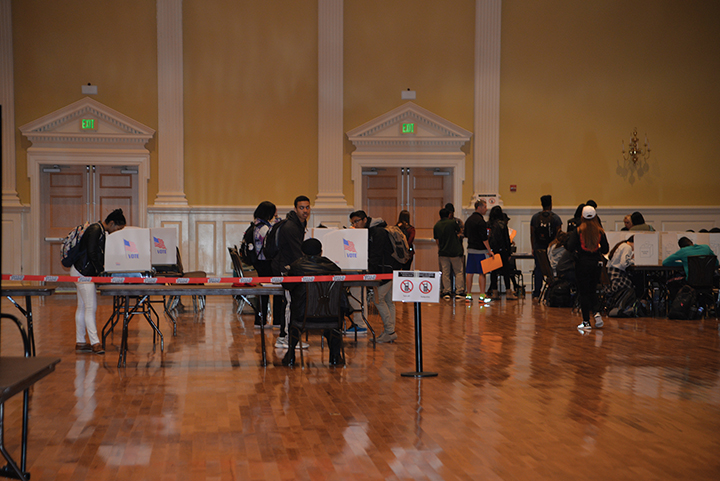By Rosie Kean
For The Diamondback
States where Republicans have recently come into power are more likely to enact voter identification laws, new research from the University of Maryland found.
Government and politics professor Michael Hanmer conducted the study with Daniel Biggers, a professor of political sciences at the University of California, Riverside, and their findings will be published in the American Politics Research journal.
Voter ID laws have long been a divisive topic among Democrats and Republicans, and the latter group tends to favor these laws as a way to protect against voter fraud. Many Democrats do not support these ID laws for fear of suppressing minority and young voters, who they believe are less likely to have the necessary identification.
Traditional conjecture about voter ID laws has been that Republican-governed states are more likely to enact voter ID laws.
Hanmer and Biggers’ research supports that claim, while also showing the timing and longevity of the Republican party’s power has more influence on passing voter ID legislation.
A state with long-standing Republican power does not have the same motivation to adopt voter ID legislation as a state where the power has just shifted to Republicans, Biggers said.
Data showed states that have just switched to a Republican governor are 40 percent more likely to adopt some sort of voter ID law, while states with continued Republican control are about 13 percent more likely.
Hanmer cited an increase in partisan competition since the 2000 presidential election as another reason for some states enacting voter ID laws.
“Those who come newly to power are more interested in trying to preserve power,” Hanmer said. “It’s really this change in power that we think is the most influential factor.”
Hanmer and Biggers believe the Help America Vote Act, passed in 2002, contributed to a rise in states passing voter ID laws. Prior to the act, only 13 states had any voter ID laws, and the majority of them merely requested, not required, photo or non-photo ID. Voters could still cast their ballot without any ID by attesting their identity in some other way, such as signing a legal statement.
In 2005, Georgia and Indiana were the first states to pass legislation requiring voters to provide photo ID in order to vote. Since then, 11 states have passed similar photo ID laws.
In the years since the Help America Vote Act passed, 35 states have adopted some form of voter ID legislation, although in some states, ID is still only requested. The remaining 15 states, including the state of Maryland, do not require voters to present any ID in order to vote at the polls.
The size of the state’s minority population also affects the likelihood of voter ID legislation, the study found. In states with larger minority populations, the effect of shifting partisan power was even stronger.
“This suggests the probability of underrepresentation of minority groups at a minimum,” Hanmer said. “There’s also the potential that the Republicans adopting the law are really looking at those groups as ones who are less likely to have the ID they need, and therefore try to gain an even larger electoral advantage.”
Professor Stella Rouse, who is also the director of the Center for American Politics and Citizenship at this university, said this research is important because it provides evidence that these laws have an effect on minorities.
“It’s easy to argue that these laws are being enacted in order to suppress the votes of certain groups, but that’s countered very easily if you don’t have evidence to show that,” Rouse said.
Although the research shows voter ID laws do affect minorities, there is not sufficient evidence to determine just how much voter ID laws affected the outcome of the presidential election, Biggers said.
“They certainly have an effect at the margins,” Biggers said. “They may have enough of a demobilizing effect to impact the election.”
Rouse said voter ID laws generally hamper certain groups from voting.
“People with low-income, minorities, young people and the elderly have a much more difficult time trying to meet the requirements of voter ID laws,” Rouse said.
Hanmer said research should be done to examine the effects voter ID laws have on voter turnout.
“We really need a sustained research effort to figure out whether it had any effect,” he said.



